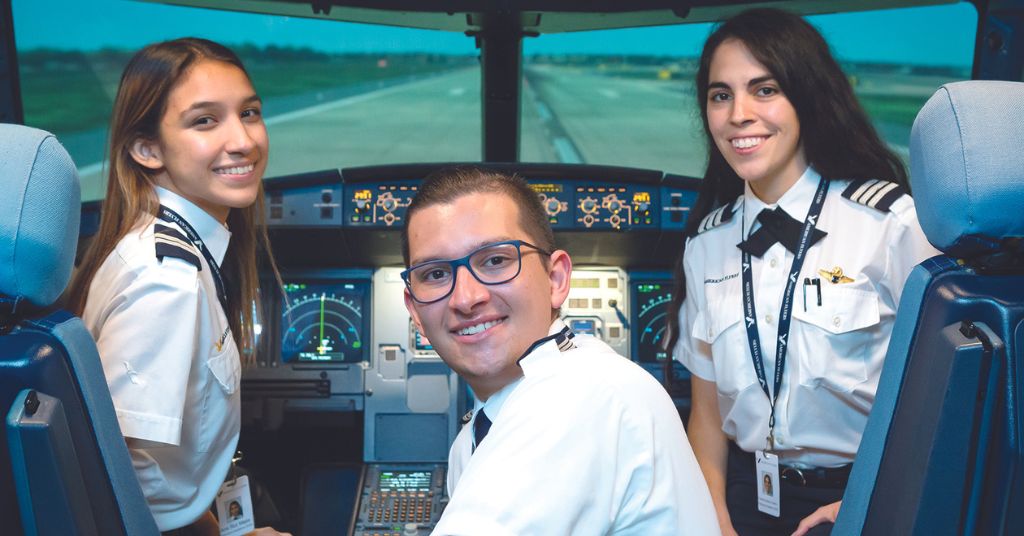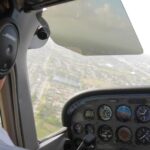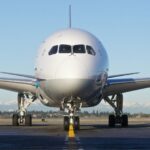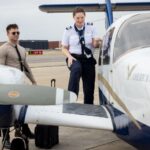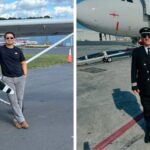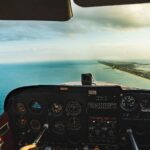If you are familiar with the aviation industry or are new and looking to get involved, you may have come across the term “fast track.” It is a phrase used to allure potential pilots by promising a rapid progression from zero flight experience to becoming an airline pilot. But what does it truly mean? Essentially, it signifies an accelerated pathway that caters to the current needs of the airlines. After all, if there were no hiring demands, there would be no need for such programs. Nevertheless, in today’s world, we are facing the most severe pilot shortage ever recorded.
‘Fast Tracking’ Your Flight Training
While the fast-track approach aims to expedite the process of becoming a pilot, it raises concerns regarding the readiness and experience of these fast-tracked individuals. The aviation industry requires pilots who possess the necessary skills and knowledge to navigate through various challenges efficiently. To achieve this, flight training plays a crucial role.
Selecting the Right Flight Training School
Choosing the right flight school has become paramount. Patience is essential, as rushing into flight training without considering the institute’s reputation, curriculum, and instructors may lead to an incomplete and inadequate education. Some flight schools may issue you a start date for the commencement of your training, and that’s ok if it’s the right school for you. Just like in making any major decision in life, rushing into it without proper information and understanding you can have a negative outcome. Hastily starting your flight training without proper research may result in a poor experience. Thoroughly researching, selecting, and waiting for the right flight school ensures receiving the best possible education and sets the foundation for a successful pilot career.
Prioritize Developing Skills
Once you find your school, mastering Basic Attitude Flying (BAF) is a fundamental skill that aspiring pilots must master during their private training. Despite its seemingly straightforward nature, numerous students with over 100 hours of flight time struggle to maneuver the aircraft effectively. Attitude flying encompasses understanding the relationship between the aircraft’s attitude (position) and flight characteristics. Without this mastery, pilots may encounter difficulties in handling critical situations, which can compromise the safety of passengers and crew. Therefore, flight students must prioritize developing expertise in attitude flying to ensure a solid foundation for their subsequent training.
The importance of solid instrument training plays a crucial role in the education of aspiring pilots. It involves flying with reference solely to the instruments, without any external visual cues. To effectively train for this, simulator training becomes invaluable. Simulators provide a controlled environment that allows pilots-in-training to practice diverse scenarios and simulate real-life flight challenges. While some flight schools may shy away from flying in instrument meteorological conditions (IMC) due to potential instructor inexperience, incorporating IMC training is vital. Exposure to flying in actual weather conditions enhances a pilot’s ability to navigate through low visibility situations, preparing them for the demands of airline flying where a significant portion of flights occurs under Instrument Flight Rules (IFR).
Building Experience vs Accumulating Hours
Typically, after completing their commercial training, a new CFI will work for 18 to 24 months to build their experience and the 1,500 necessary hours for the Airline Transport Pilot (ATP) requirement. This is a critical phase of a professional pilot’s journey because, as you must understand, it is not about the number of hours but rather the experience. You can choose to fly low and slow towing a banner or tracking pipelines or choose to fly under various conditions and teach upcoming pilots gaining experience.
During this time, your sole focus should be continuing your education while ensuring your students receive the best education. If you want to be ready for your job as an airline pilot, you must continue to learn and mature to ensure you are ready for the responsibility that comes with the role. Employment opportunities after your flight training are also important. At American Flyers, we firmly believe in preparing and shaping students into flight instructors from the very beginning. By offering employment opportunities within our organization, we aim to not only retain talented individuals but also supply the industry with the best pilots. This comprehensive approach ensures that graduates possess the necessary experience, enabling them to seamlessly transition into the airline industry.
Airlines ‘Fast Tracking’ Your Career
Today, airlines themselves promote a swift advancement for their pilots, such as the possibility of being upgraded to captain within just two years and spending another three years in that role before transitioning to major airlines. This approach is vastly different from the experiences of veteran pilots, who will tell you that their journey was nothing like this.
Forced upgrades are when a first officer is upgraded to captain although they may not be ready, and this is a reality of fast-tracking. It requires pilots to assume higher positions and take on greater responsibilities sooner than expected. These forced upgrades can simultaneously be exhilarating and daunting. On one hand, it allows pilots to showcase their skills and prove their worth. On the other hand, it demands a level of expertise and experience that may not have been fully developed within such a short period of time. Once you understand this, it becomes apparent that fast-tracking your progression must be approached with careful preparation and a commitment to continuous learning.
One particular challenge that arises from fast-tracking is the possibility of being seated next to someone who is not adequately prepared for the task at hand. While this may initially seem concerning, it should not deter aspiring pilots from embracing the idea of fast-tracking. Instead, it should serve as a reminder of the importance of their dedication to their profession. By fully immersing themselves in their education and constantly seeking to improve their skills, aspiring pilots can ensure that they are prepared for any challenge that comes their way.
Over the next two decades, the United States alone will require an estimated 130,000 to 150,000 pilots. The combination of rapid pilot retirements and the growing number of commercial flights fuels this demand. But how does the fast track program operate, and does it genuinely make sense? The answer often depends on your flight school. Most flight schools advertise the rapid progression from an individual’s first flight lesson to their first job at an airline, a process that generally takes 2.5 to 3 years.
I have personally spoken to a retired airline pilot who began his career as a flight attendant. After working in that role, he later advanced to become a flight engineer, where he remained for ten long years. He was finally able to upgrade to first officer, a position he only held for a short period because, unfortunately, the airline he worked for filed for bankruptcy when he achieved his new rank, forcing him to start over once again. Nonetheless, he persevered, found another job, and eventually became a captain after twenty years of hard work and dedication. He will tell you that although it was an arduous wait, it allowed him to gain the necessary experience and maturity to excel in his role as captain. This anecdote serves as a reminder that rapid progression does not guarantee preparedness.
Passion Versus Fast-Tracking
Embracing the idea of fast-tracking means nurturing the passion that brought individuals into this industry in the first place. Fast-tracking should not be pursued solely for the sake of expedited progression. It should be fueled by a genuine love for flying and a desire to contribute to the aviation community. Passion is what separates exceptional pilots from ordinary ones, and it is what keeps the industry alive and thriving. By continuously reminding themselves of the passion that led them to pursue a career in aviation, pilots can navigate the challenges of swift progression with unwavering dedication and enthusiasm.
Develop Your Pilot Skills Without Compromise
The aviation industry’s need for qualified pilots necessitates a reevaluation of the concept of what it means to ‘fast track’ your flight training. Redefining the term requires a holistic approach. While quick progression is not inherently negative, aspiring pilots must be prepared for the challenges and responsibilities that come with it. Forced upgrades should serve as reminders to continuously develop one’s skills and knowledge. You must dedicate yourself to your craft and your students, understanding that education is a lifelong journey. By doing so, the aviation industry will be filled with pilots who possess the right skills and mindset, and are fully prepared for the tasks at hand.
I would love to hear your feedback on this topic. Please email me your thoughts at andrew.henley@americanflyers.com.




